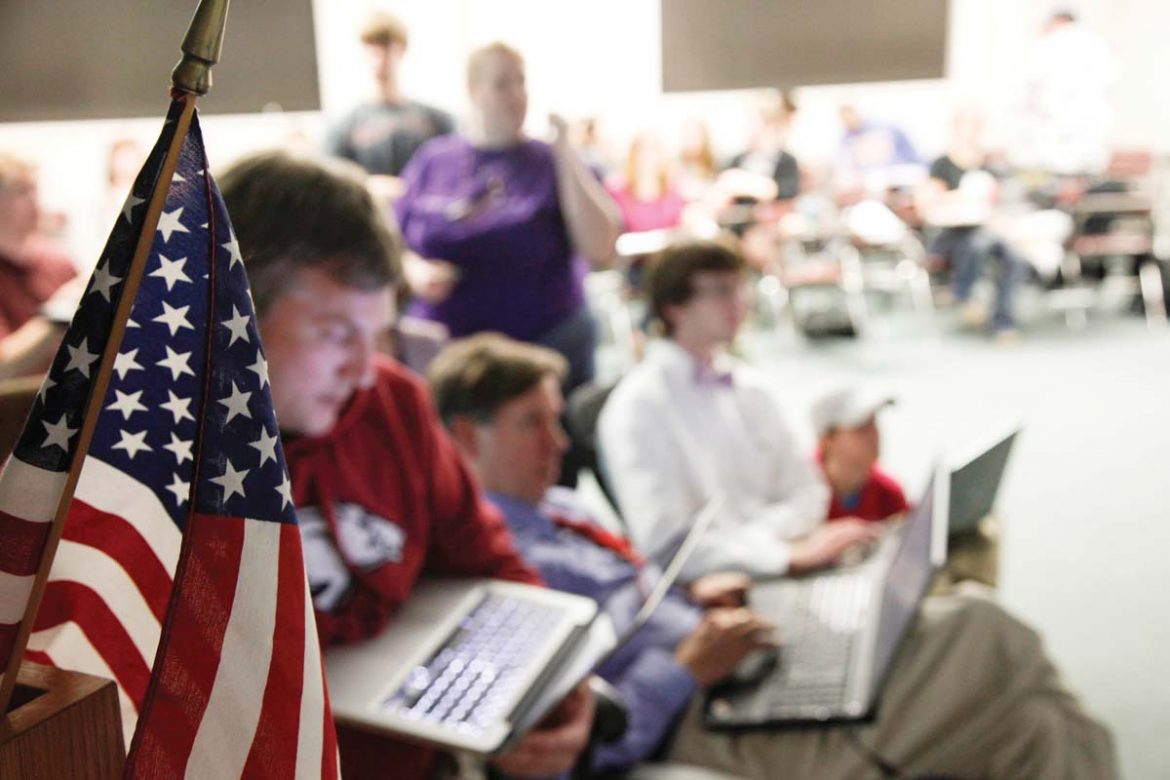After a hard-fought presidential race, Barack Obama was re-elected president of the United States on Tuesday, Nov. 6.
Obama earned 332 electoral votes and about 60 million popular votes, beating out Gov. Mitt Romney, who earned 206 electoral votes and about 57 million popular votes. The incumbent carried several battleground states, including Ohio and Virginia, while Romney won North Carolina, a state that Obama carried in his 2008 presidential run.
The president was optimistic as he addressed his supporters after being named the victor.
“Tonight in this election, you, the American people, reminded us that while our road has been hard, while our journey has been long, we have picked ourselves up, we have fought our way back,” Obama, quoted in The New York Times, said to his supporters early Wednesday. “We know in our hearts that for the United States of America, the best is yet to come.”
Gubernatorial and congressional elections were also held yesterday, and while the makeup of Congress will remain essentially the same — with Republicans controlling the House of Representatives and Democrats controlling the Senate — the majority of governors are now Republicans. Other changes occurred at the state level as well, including the fact that Republicans now control both houses of the Arkansas General Assembly — “a statewide shift toward Republican control that is unprecedented since just
after the Civil War,” according to Assistant Professor of Political Science Lori Klein.
Obama’s re-election comes at a time when America is headed toward what has been termed the “fiscal cliff,” in which mandatory spending cuts are scheduled to take effect Jan. 1, while President George W. Bush’s tax cuts for the middle class are set to expire at the same time. Obama and Congress must pass a budget deal in less than two months to avoid the tax hikes and spending cuts that will necessarily follow.
Because the executive and legislative branches remained relatively unchanged and divided after the elections, Assistant Provost Cheri Yecke said she thinks “the current lack of will to implement meaningful fiscal reform won’t change.”
Harding students named the economy as one of the issues that were most important to them for this election, as well as foreign policy, abortion and health care.
Freshman Laura Rowe said she did not think the economy would improve during Obama’s second term.
“I think that we will lose our standing as an economic powerhouse,” Rowe said. “I think that our debt will increase. I think that our currency will be highly inflated. And I do not think that we will create any more jobs.”
Rowe also said she attributes Obama’s victory to America’s changing demographics and shift toward government dependence.
Freshman Andrew Newman said he found it “disturbing and puzzling” that America re-elected Obama and that he viewed the Nov. 6 election as a sign of the U.S.’s division.
“I was definitely hoping for Romney, but I think it just shows you how divided our nation is, and that’s a sad thing,” Newman said. “And it’s just something we need to work on as a country and for us to stand up for Christianity as well before politics.”
Senior Doug Lyons said he was glad that the president won the election.
“I’m really excited about it,” Lyons said. “I think he’s the best candidate available at the time, and I think that we have a bright future going forward.”
